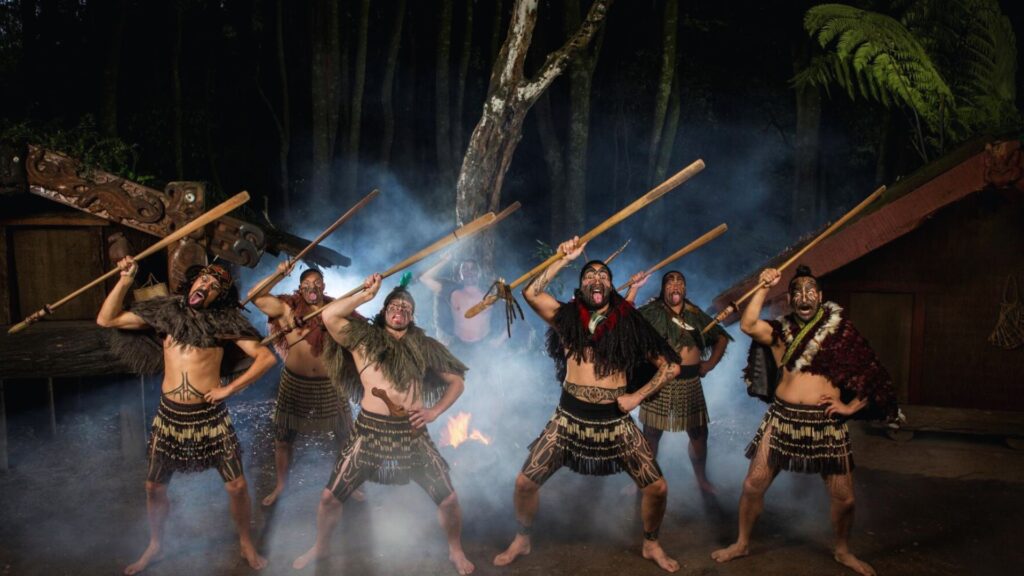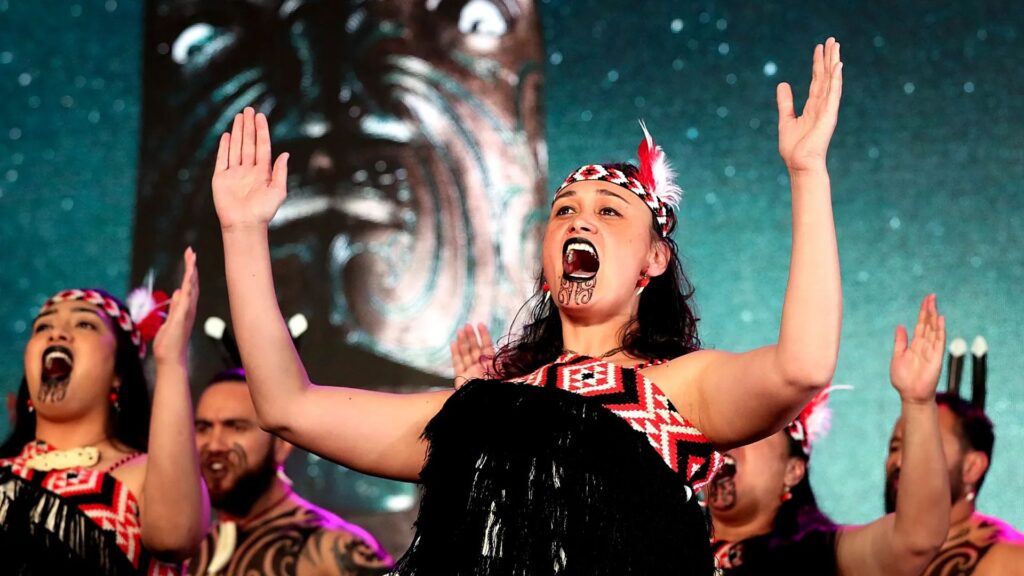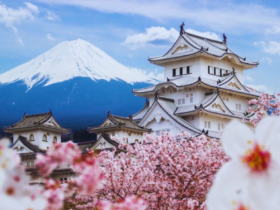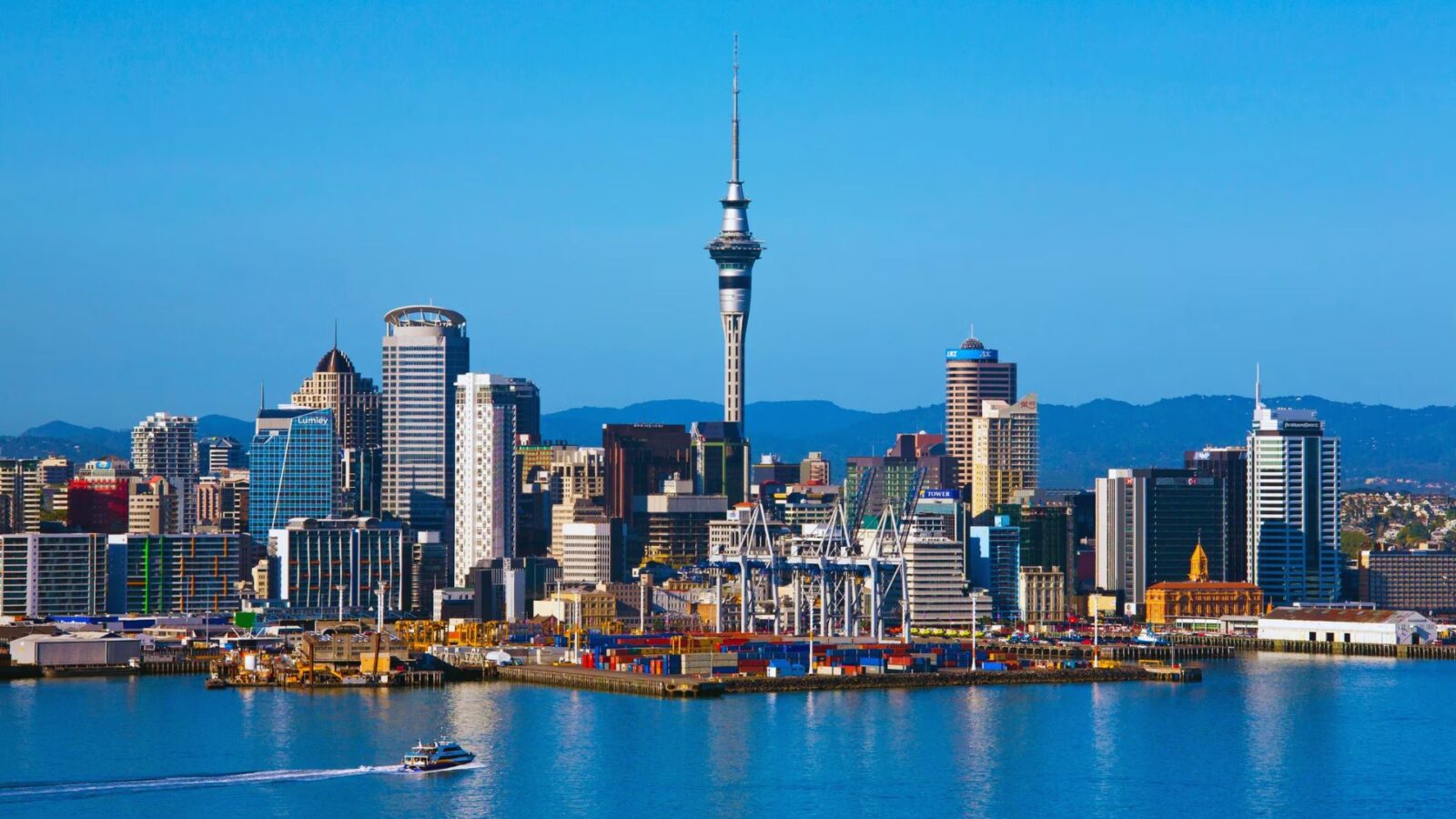New Zealand, or Aotearoa in Māori, is a land rich in culture, natural beauty, and history. While it is often celebrated for its breathtaking landscapes, the cultural experiences it offers are equally remarkable. From indigenous Māori traditions to contemporary Kiwi lifestyles, visitors can immerse themselves in an authentic blend of heritage and modern living. In this blog, we explore some unique cultural experiences that will enrich your visit to New Zealand.
1. Experience Māori Culture in Rotorua
Rotorua, known for its geothermal wonders, is also the cultural heart of Māori heritage. Here, visitors can engage in immersive cultural experiences that include haka performances, traditional crafts, and indigenous cuisine.
- Tamaki Māori Village: Participate in a pōwhiri (welcome ceremony) and witness the powerful haka dance performed with passion. Enjoy a hāngī, a traditional Māori meal cooked underground, and learn ancient storytelling traditions.
- Te Puia: In addition to cultural performances, visitors can explore the New Zealand Māori Arts and Crafts Institute, where traditional carving and weaving techniques are taught. The site is also home to the Pōhutu Geyser, providing a natural spectacle alongside the cultural one.
This immersive experience helps visitors connect deeply with the customs, values, and history of the indigenous Māori people.
2. Attend a Haka Performance
The haka is a ceremonial dance best known for being performed by New Zealand’s national rugby team, the All Blacks, before matches. However, the haka’s origins are deeply rooted in Māori tradition, where it was performed on various occasions—such as to welcome guests or mark significant events.
- Auckland War Memorial Museum: Attend a live cultural performance that includes the haka, accompanied by other traditional Māori dances. This experience not only entertains but also educates visitors about the symbolic meanings behind the movements and chants.
- Whakarewarewa Village in Rotorua: Enjoy authentic haka performances and gain insight into its historical context within Māori communities.
Experiencing the haka firsthand is a moving way to understand Māori culture’s emphasis on unity, strength, and identity.

3. Visit a Traditional Marae
A marae is a sacred communal space central to Māori life, where meetings, ceremonies, and celebrations take place. Visiting a marae is a unique opportunity to engage directly with Māori customs and values.
- Waitangi Treaty Grounds: Located in the Bay of Islands, this site marks the signing of the Treaty of Waitangi between Māori chiefs and the British Crown in 1840. Visitors can take part in guided tours, witness kapa haka (group performances), and explore the on-site museum.
- Te Tii Marae: Some tours allow visitors to attend ceremonies and hear stories shared by local iwi (tribes), providing an authentic glimpse into the importance of the marae within Māori society.
A marae visit offers an unparalleled opportunity to understand Māori spirituality, community values, and the way of life practiced for centuries.
4. Explore the Art of Greenstone Carving in Hokitika
Greenstone, or pounamu, is a highly valued stone among Māori people, symbolizing strength, prosperity, and connection. In Hokitika, on the West Coast of the South Island, visitors can observe or try their hand at this ancient art.
- Bonz ‘n’ Stonz Workshop: This hands-on experience lets you carve your own greenstone under the guidance of local artisans, creating a meaningful souvenir to take home.
- Hokitika Gorge and Greenstone Studios: Learn about the significance of pounamu to the Māori people and how it continues to play a role in their identity today.
This experience blends creativity with cultural insight, giving visitors a chance to take home a piece of New Zealand’s cultural heritage.
5. Learn Traditional Māori Weaving Techniques
Māori weaving, or raranga, is more than just an art form—it is a spiritual practice that reflects connections with nature, ancestors, and community. Traditional weaving often uses harakeke (flax) to create practical objects like baskets and mats as well as ceremonial cloaks.
- Te Puia in Rotorua: Here, visitors can attend weaving workshops, meet skilled weavers, and even try weaving simple patterns themselves.
- Auckland Art Gallery and Cultural Events: Some galleries and local festivals offer raranga workshops where visitors can explore contemporary applications of this ancient art.
Engaging with Māori weaving traditions allows visitors to connect with the cultural significance of materials and techniques passed down through generations.
6. Indulge in Kiwi Cuisine with a Māori Twist
New Zealand’s food culture blends Māori traditions with European and Pacific Island influences, resulting in a vibrant culinary scene.
- Hāngī Meals: A traditional hāngī involves cooking food underground using heated stones. You can experience this slow-cooked feast at Māori cultural villages in Rotorua or special events throughout the country. Dishes include tender meats, kumara (sweet potato), and vegetables, infused with smoky flavors from the earth.
- Modern Māori Cuisine: Contemporary restaurants like Hiakai in Wellington bring innovative twists to traditional ingredients like kawakawa, horopito, and pāua (abalone). Chef Monique Fiso’s creations pay homage to Māori heritage while pushing culinary boundaries.
This fusion of heritage and modern gastronomy offers a delicious way to experience New Zealand’s evolving cultural identity.
7. Celebrate Matariki – The Māori New Year
Matariki is the Māori name for the Pleiades star cluster, which signals the beginning of the new year in the Māori lunar calendar. This event, celebrated in mid-winter (around June-July), is a time for reflection, renewal, and celebration.
- Community Celebrations in Auckland and Wellington: During Matariki, cities across New Zealand host cultural events, including concerts, light shows, and storytelling sessions.
- Whānau Activities (Family-focused events): Visitors can engage in traditional crafts, planting ceremonies, and workshops focused on Māori mythology.
Experiencing Matariki offers a unique opportunity to connect with Māori spirituality and gain insight into the indigenous way of marking time and renewal.

8. Attend a Rural Sheep Shearing Show
Agriculture, especially sheep farming, plays a significant role in New Zealand’s history and economy. While sheep shearing may seem like a practical task, it has become a celebrated part of Kiwi culture, with competitions, shows, and festivals centered around it.
- The Agrodome in Rotorua: Attend live sheep-shearing demonstrations and meet various sheep breeds, while also learning about New Zealand’s farming history.
- Golden Shears in Masterton: If you visit during March, the Golden Shears competition offers an exciting glimpse into the high-energy world of competitive sheep shearing.
These shows highlight the practical side of rural life in New Zealand, offering visitors a hands-on experience with the country’s farming heritage.
9. Discover the Vibrant Street Art of Christchurch
After the devastating earthquakes of 2010-2011, Christchurch transformed itself into a hub for contemporary street art. The city’s walls are now canvases for both local and international artists, creating a vibrant cultural experience.
- Christchurch Street Art Tours: Join guided tours to explore the best murals, many of which reflect themes of resilience, community, and renewal.
- Gap Filler Projects: These innovative art installations and pop-up spaces make use of vacant lots and abandoned spaces, turning them into lively community hubs.
Christchurch’s street art scene exemplifies how art can foster cultural identity and recovery.
10. Explore Wine Culture in Marlborough and Central Otago
New Zealand’s wine industry has become renowned globally, with regions like Marlborough and Central Otago producing some of the world’s best Sauvignon Blancs and Pinot Noirs. Beyond wine tasting, visitors can experience the culture behind these vineyards.
- Marlborough Wine and Food Festival: Held annually in February, this festival offers tastings of award-winning wines and locally sourced food. Visitors can engage with winemakers and learn about the sustainable practices that shape the industry.
- Bike Tours Through Vineyards: In Marlborough, many wineries offer bike tours, allowing visitors to cycle through picturesque vineyards and taste wine along the way.
Exploring New Zealand’s wine culture offers a delicious way to appreciate the country’s focus on quality, sustainability, and craftsmanship.
Conclusion
New Zealand offers a rich tapestry of cultural experiences that go beyond sightseeing. From Māori traditions deeply connected to the land, to modern expressions of Kiwi creativity, these cultural encounters will leave a lasting impact on visitors. Whether you’re learning the art of pounamu carving, participating in a haka, or enjoying a hāngī feast, New Zealand’s cultural richness invites exploration, learning, and connection.
Planning your itinerary with these unique experiences will ensure a more meaningful and memorable journey through Aotearoa.


















Leave a Reply